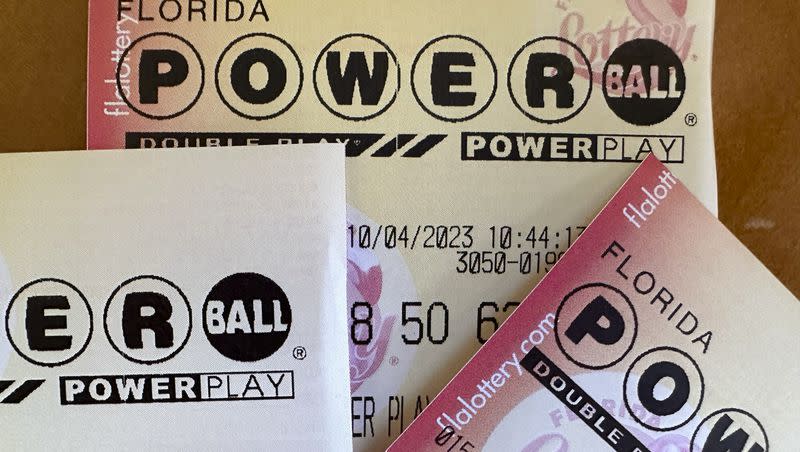Opinion: Why a lottery would be disastrous for Utah

The 2024 Utah legislative session will commence in a few days, but already we have heard one idea that, if passed, would be among the worst public policy moves imaginable.
Rep. Kera Birkeland, R-Morgan, is talking about changing the Utah Constitution to allow a state lottery. Her stated reason would be to raise enough money to reduce property tax rates, which have risen in recent years along with property values.
It’s a terrible idea.
Birkeland keeps saying Utah is missing out on $200 million in revenue each year because people here drive to Idaho, Wyoming or Arizona to buy lottery tickets. That claim needs a bit of context.
A 2022 statistical report by the state tax commission said state residents were charged a collective $2.3 billion in residential property tax in 2021, with another $909 million charged to commercial property owners. Even if it were a credible figure, $200 million would hardly dent this amount. But it’s even less significant than that, considering only a portion of the $200 million spent on lottery tickets would be taxed.
That’s a tiny piece of revenue to chase in exchange for a wholesale degradation of the way state government interacts with its citizens.
Government derives its power to tax from the collective will of the people, who send their elected representatives to the state Legislature. Those representatives choose programs or needs to fund based on their judgment as to what is best for the people, and, by implication, the people agree to sacrifice a portion of their money for the good of society.
But states that decide to use lotteries to help fund government change that equation. Rather than sacrificing for the common good, people are lured with the false promise of striking it rich, and by the equally false promise of getting government services essentially for free.
In a recent piece for The Washington Post, author Jonathan D. Cohen demonstrated how state governments, worried about revenues, try to lure vulnerable residents into gambling on the lottery through advertisements, even though the odds are stacked against them.
“These (ad) campaigns often feature children, painting the lottery not as a game of chance but as a civic good for the future of the state,” Cohen wrote. “Of course, these ads never acknowledge the actual percentage of lottery dollars that feeds into state coffers (28.6% nationally in 2021), neither do they show lottery revenue as a percentage of states’ total income (roughly 1% to 2% per year). But lottery commissions do not need to worry about misleading voters about gambling’s contributions to government. Their mission is only to convince people to buy more tickets.”
And those ads are exempted from the federal trade commission’s truth-in-advertising laws.
“Billboards on the side of the highway featuring a 10-figure payout place the prospect of a massive prize in players’ heads, and they do the rest,” Cohen said. “Even those who rarely or never buy tickets see eye-popping sums and are tempted to imagine a life of wealth.”
Most of the people who respond by purchasing tickets earn low incomes and can least afford to lose their money. An investigation by the Howard Center of Investigative Journalism found that “stores that sell (lottery) tickets are disproportionately clustered in lower-income communities in every state. In some states, these patterns also exist in Black and Hispanic neighborhoods.”
A Bankrate.com survey concluded that people earning less than $30,000 spend 13% of their annual income on lottery tickets, while those earning more than $80,000 spend only 1%.
A lottery, then, would lure poor people with the false promise of riches, while the wealthy benefit the most. Not only is that unfair, it’s cruel.
But even the promises of state revenue often fall short. Or, as education writer Valerie Strauss wrote in a different Washington Post piece, “in state after state, where lotteries send millions of dollars to public education, schools are still starved.”
In Utah, the largest share of property taxes is administered by county governments. Birkeland said she wants to reduce property taxes to help seniors on fixed incomes. Counties already have “circuit breaker” laws that offer discounts to elderly and low-income residents.
But if she really wants to help seniors, she should look for ways to help them directly, not through indirect schemes that hurt poor people and offer false promises.
Only Alabama, Alaska, Hawaii, Nevada and Utah remain free from the madness of lotteries, and only Utah and Hawaii remain free from the scourge of any type of gambling.
For the good of the nation’s fastest-growing state and strongest economy, we hope this always remains so.

